Table of Contents[Hide][Show]
Truly healthy skin is well hydrated, moisturized and has a natural radiance to it. When your skin is in this state you’ll achieve the “dewy youthful glow” that we all seek. We are aware of this but when we look in the mirror the word radiant doesn’t always come to mind. Why?
The core of the issue could be because we assume that hydrating and moisturizing are the same. Hydrating and moisturizing are actually two distinct acts that create very different results in the skin, yet they are used interchangeably all the time creating confusion.
What’s the difference between hydrating vs moisturizing?
Understanding the science behind what the skin needs and why will give you the knowledge you need to balance the skin and finally achieve vibrant healthy skin that’s both hydrated and moisturized.
Read on to discover:
- The skin science behind what makes hydrating and moisturizing different.
- Why you need both of these in your skincare routine.
- Ingredients that will effectively hydrate and moisturize the skin.
Hydrating
Hydrating is usually connected to the amount of water we drink. Similarly, hydrating the skin refers to keeping the water levels up within the skin. Yet hydrated skin is achieved differently than drinking water. Yes, drinking water helps, but this is not the only action we need to do to maintain water levels within our skin cells. Explore our guide on efficient ways to hydrate your skin to discover effective strategies for ensuring your skin remains sufficiently hydrated and radiant.”
The importance of hydrated skin
When skin cells are well hydrated they swell to be plump, bouncy and reflect light effectively. If water flows out of the cells they become dehydrated and can shrivel up, which leads to lackluster skin. Imagine your skin cells are mini water balloons. In their healthiest state, they are full of water, firm, bouncy, plump and reflect light.
Now imagine these mini balloons have a slow leak where the water is steadily escaping. What happens to the balloon? It loses its rounded plump shape, it is less bouncy and as the water gets low it shrivels up and becomes dull looking.
Even if we find the leak and patch it up, the skin still needs a fresh infusion of water to refill what’s been lost. In addition, it needs support to hold onto the water.
This is where skin hydrators come in.
Ingredients that hydrate the skin
An obvious, and basic, option is to increase the moisture in the air around you. You can increase the water levels in the air around you with a humidifier, mister or steamer (this is especially critical in winter months). Another external moisture pick-me-up is to mist the skin with water to help replenish some of the dehydration.
It is important to note that if the skin is in a poor state then it will have a hard time holding onto pure water and you will quickly feel dehydrated once more. To help the skin hold onto water, humectants come to the rescue.
What are humectants?
Humectants are substances that absorb water from the air or underlying layers of the skin and draw those molecules toward the surface of the skin. This allows the skin to retain moisture and can help other topical skincare ingredients perform better. Some natural humectants include aloe, honey, and hyaluronic acid.
Hyaluronic acid is extra special because it is known to hold 1,000 times its weight in water, effectively plumping the skin and helping maintain the water levels in your skin cells. Your skin already has hyaluronic in it but these levels deplete with sun exposure and age so it is important to replenish this water-loving ingredient for optimum skin health.
To achieve well-hydrated skin it is important to include the above in your daily skin care. Read on to learn how to easily incorporate these ingredients into a daily routine.
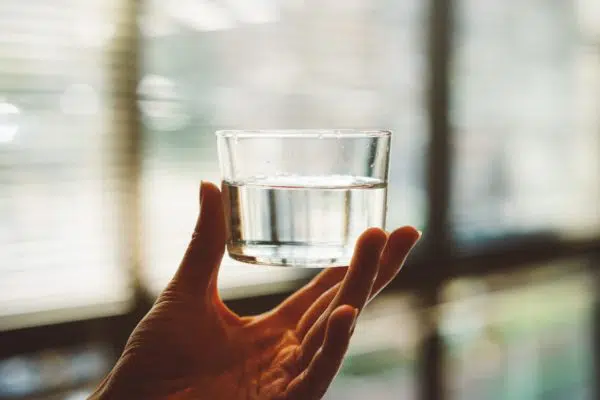
3 ways to hydrate your skin
1. Drink plenty of water
If you drink caffeine or alcohol drink that much more water. I find that I need an app to help me stay on track with my water consumption. Tracking my consumption and getting little reminders throughout the day has made a huge difference in the amount of water I drink.
If you have trouble, try a water tracker app. Many are even free.
2. Mist your skin
Carry a small bottle of hydrosol in your bag or backpack to mist your face throughout the day. Look for with a hydrosol mist of aloe with floral or herbal infusions for the best overall skin pick me up.
[Note: Avoid any mists that contain alcohol. This can dry the skin and defeat the purpose of this hydration boost.] If you feel self-conscious misting yourself in public, you can always do it in the bathroom as a final refresher after you wash your hands.
3. Apply serums daily
Especially those that contain hyaluronic acid. I especially love to wear this in the morning to keep my skin supported throughout the day when it needs the most help staying hydrated. I rarely ever skip this step.
If you are in a hurry and need to cut down on your routine, find another way to shave off time in your morning prep and keep this step as a non-negotiable. Your skin will thank you today and years from now.
Moisturizing
If you consume water regularly, you perform the above hydration tips, and you’re someone who still suffers from dry, flaky, tight or dull skin, then you may need to elevate your use of moisturizer.
Dry, dull, tight skin means your skin isn’t producing enough lipid cells on its own. Remember those tiny water balloons with the slow leak? Well, those leaks happen when your skin oil moisture is not at the optimal levels.
What are moisturizers?
Moisturizers are the tools that can seal up the leaks and prevent your skin from losing water in the first place. Moisturizing effectively seals in moisture and builds the skin’s protective barrier. This prevents water loss and ultimately keeps the skin soft and smooth.
It all goes back to preventing water loss and refilling water levels – after all, our bodies are made up of 50-75% water depending on age, weight and muscle mass. So, maintaining water levels is vital to our health.
Choosing the right moisturizer
You most likely already have a moisturizer at home. If this isn’t working it might not contain the level of nourishment you need. The following are recommended oils based on skin type. The differing oils have varying sized molecules that will support the level of moisture your skin needs to rebuild its lipid barrier.
When using oils as your moisturizer I recommend finding a blended formulation for the best texture and overall absorption experience. I also recommend applying the oil in 5 dots (forehead, cheeks x2, nose, chin) and working into the skin outward and upward for an even application. You may also want to learn more about common moisturizing mistakes to avoid to prevent skin from quickly aging.
Moisturizing oils by skin type
Oily skin oil moisturizers: Grapeseed, Argan, Buckthorn, Kukui, and Rosehip
Normal / sensitive skin oil moisturizers: Grapeseed, Tamanu Oil, Hemp Seed, Coconut
Dry skin oil moisturizers: Sesame, Olive, Avocado, Sunflower, Jojoba
Hydrators vs moisturizers?
As you can see natural based moisturizers and hydrators have the same fundamental role in your skin care.. They both aim to keep the water levels in your skin at optimum. However, they achieve this very differently and are both needed.
When moisturizer is combined with hydrators on a daily basis your skin is able to maintain a plump, bouncy texture that pulls water into your skin cells and achieves a strong protective barrier to lock it in. When the skin is supported by both of these a radiant glow and, most importantly, healthy skin function is the result.
Have any other tips and tricks? I look forward to hearing how you get your daily hydration and moisture fix! Interested in more reading? See our detailed instructions on how to use hyaluronic acid and vitamin C to get the best results.
References:
Skin hydration: interplay between molecular dynamics, structure and water uptake in the stratum corneum
Hydrator vs. Moisturizer: What’s the Difference and Which One Do You Need?
How Much of Your Body Is Water? That All Depends
What’s The Difference Between Hydrating And Moisturizing?
What Are The Best Oils For Your Skin Type?
HUMECTANTS AND MOISTURIZERS: WHAT’S THE DIFFERENCE?
Moisturizers: Do they work?
What would happen if you never moisturized your face?
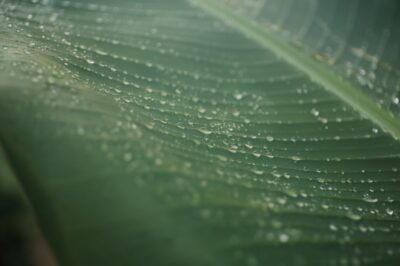

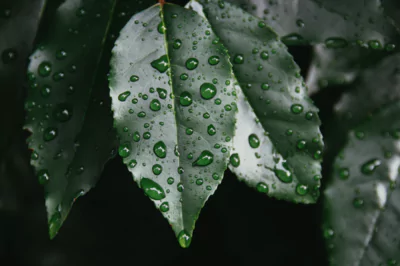
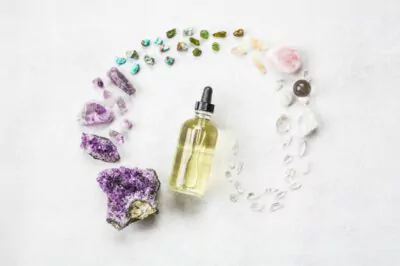
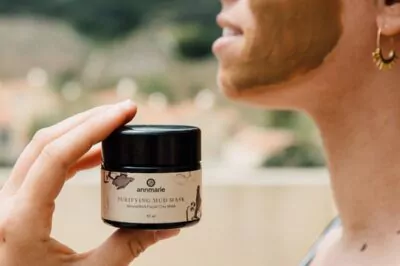
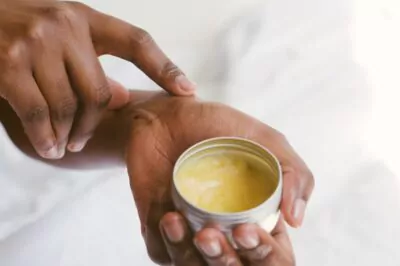
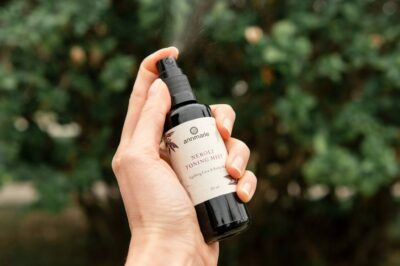
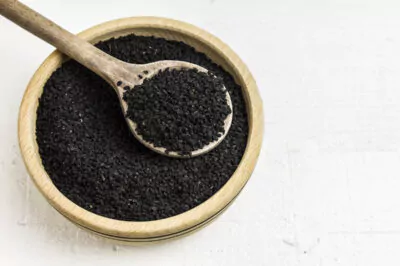
Pretty! This was an extremely wonderful post. Thanks for supplying this info
I really appreciate all of your knowledge and help. Does the hydrating product go first, and then the moisturizer? And what about a primer?
Would these products be too much?
Wow! I thought I knew a lot about skin care, but much of this was new information for me. Thanks for the great explanation. Really fascinating, and it definitely helps me better understand the mechanics of hydration…AND moisturizing!